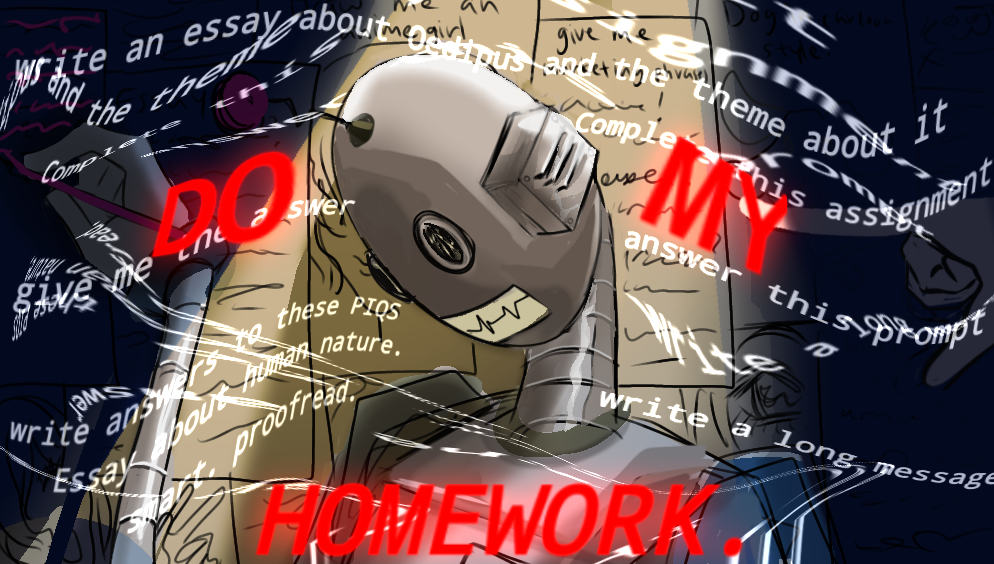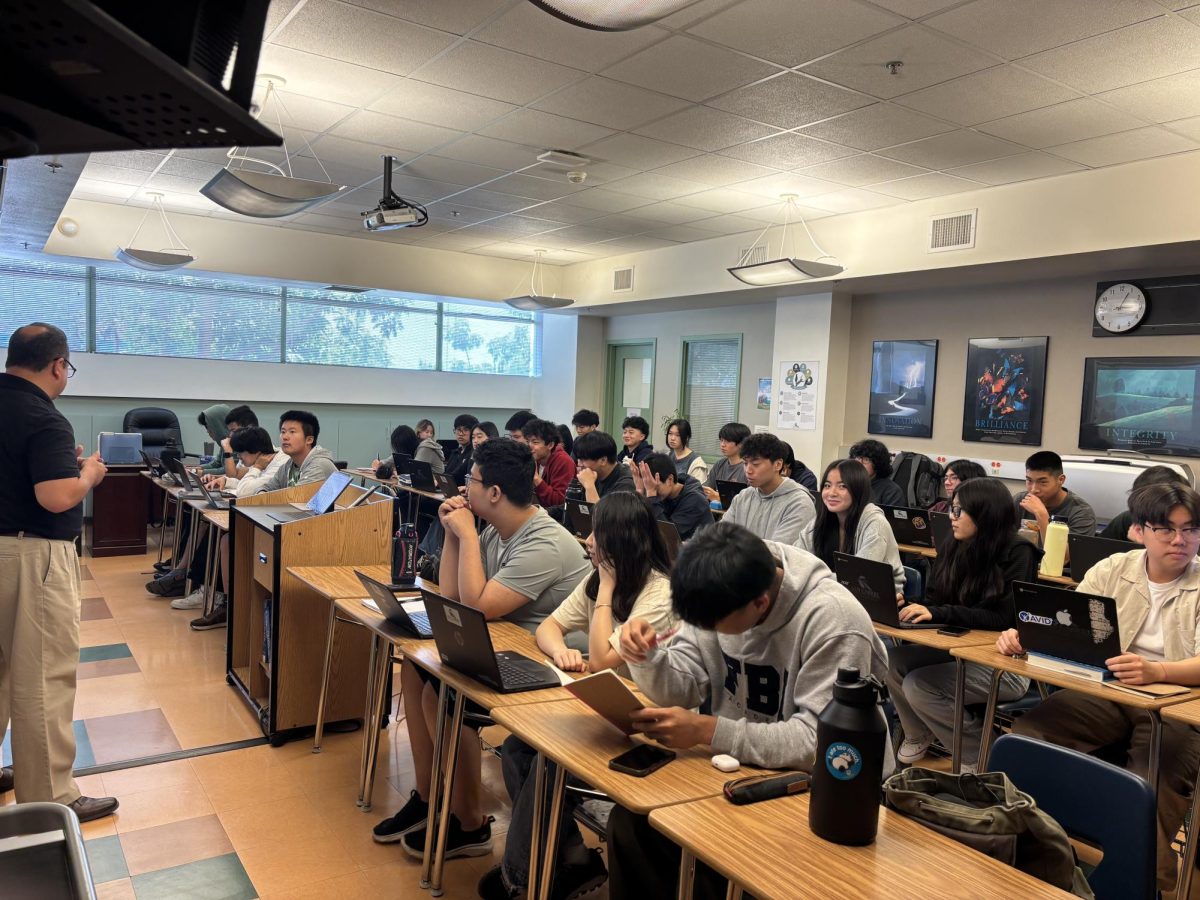By Violet Wang | Staff Writer
Gabrielino High School is proud to boast its best: an incredible 96 percent graduation rate, a variety of AP classes, star students attending top schools, and excellent extracurriculars. However, despite the high average results of the school, there is a massive gap between the achievement of different demographics of students, disproportionately affecting Gabrielino’s Hispanic population. The school must address this through flexibility in homework policies and more accelerated class options.
Each year, schools across the nation take the SBAC, or Smarter Balanced Assessment Consortium, which analyzes how well a school does in different academic subjects based on how students score on the test. Each year’s average scores are available to the public, as well as separate average scores based on demographics such as ethnicity.
According to last year’s scores, Hispanic students have vastly lower average SBAC scores than other demographics, as opposed to Asian students with vastly higher average SBAC scores than other demographics, being the only group reaching “High” performance levels. In both English and Math, Hispanic students are ranked at the “Very Low” performance level at 80 points below the standard and 155 points below the standard respectively.
The reasoning for this difference is complex, but one leading theory is a difference in family obligations.
A survey conducted by Texas Public Radio found that Hispanic students were more likely to help pay their family’s bills. Another study on Hispanic youth showed that Hispanic students in Los Angeles had a high rate of family obligations, which correlated with a lower likelihood of getting a four-year college degree. Despite a large rate of parental encouragement to attend college, by being responsible for full or part-time jobs, Hispanic students, on average, have less time to study or do homework.
Coupling with this lack of time is the way that accelerated courses are advertised.
AP classes are presented as requiring one hour of homework each night, something that is simply not true. AP classes, like all other classes, frequently have days without homework, or weeks of projects, and most teachers, mercifully understanding that students have more than just one class, do not intentionally overload students with an hour of homework per night.
Advertising AP classes as having such a high time requirement discourages students with outside time commitments from taking them at all.
In addition to this, offering purely regular classes and AP classes with no in-between option leaves students who want to learn more without the pressure of an AP class without an option. Only a few subjects offer Honors, such as Biology and English, but those are often grade-restricted.
Honors classes can help improve student understanding and education for students of more ranges.
Gabrielino must offer more flexibility in both work policies and class options. This would help not just Hispanic students, but any students with family responsibilities or interest in accelerated learning without too high a jump in pressure.
Teachers can help students by reducing workload, such as assigning homework only if it strictly cannot be done in class and if it is essential. Teachers can also choose to have more flexible homework submission rules, such as late work being graded equally to work turned in on time, or homework never being due the day after it was assigned.
Gabrielino should also stop presenting AP classes as requiring such a constant and high commitment, and provide more Honors classes to students.
Gabrielino is an amazing school, but not an amazing school for everybody. Gabrielino must employ flexibility in its systems to address every student’s needs. By addressing the needs of Hispanic students, Gabrielino can ensure equity and success for all Eagles.






